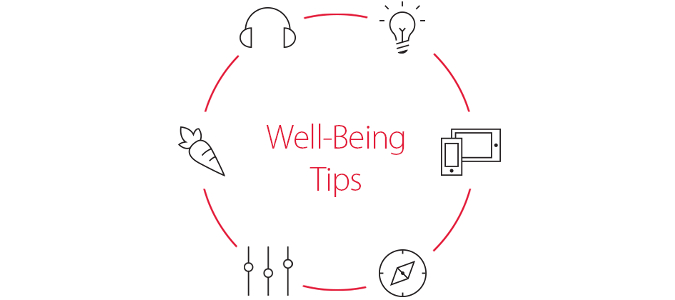Workspace Well-Being
Effective workspace design fosters well-being—increasing organizational success.
Traditionally, office design focused on productivity—but the conversation has shifted to include a more holistic, person-centered point of view that improves employee performance, increases attraction/retention, and benefits the bottom line. Today the workspace can promote well-being, an enduring state that encompasses cognitive support, psychological comfort, and physical wellness, and can also lead to engaged and healthy employees. The top five global health issues for professionals are:
- Workplace stress
- Lack of physical activity or movement
- Sleeplessness
- Drug and alcohol abuse
- Poor eating habits
The health risks not only affect the person, but also the organization, through absenteeism and increased healthcare costs.
Happiness
Improve engagement, productivity, and health by fostering a happier and more meaningful work experience for your employees. The Happiness conversation is an emerging global aspiration. Real happiness—and a meaningful life—is not a short-term emotion. It is an enduring state that can lead to productive, engaged, and healthy employees.
Learn More About Employee Happiness
Enhance performance and reduce risks
Focusing on well-being represents a shift from a "space-centric" to a "people-centric" approach in workspace design, resulting in positive outcomes related to quality of life.
Haworth has an ongoing, long-term global research program involving hundreds of people. Based on preliminary results, they have developed several workspace design tips for well-being.
View Design Tips for Well-Being
The WELL Building Standard®
Haworth - WELL Building - Ratkovich from Haworth Inc. on Vimeo.
The WELL Building Standard® takes a holistic approach to health in the built environment, addressing behavior, operations, and design. It certifies organizations that are building workspaces to support the physical and mental health of their employees—what we call well-being.




